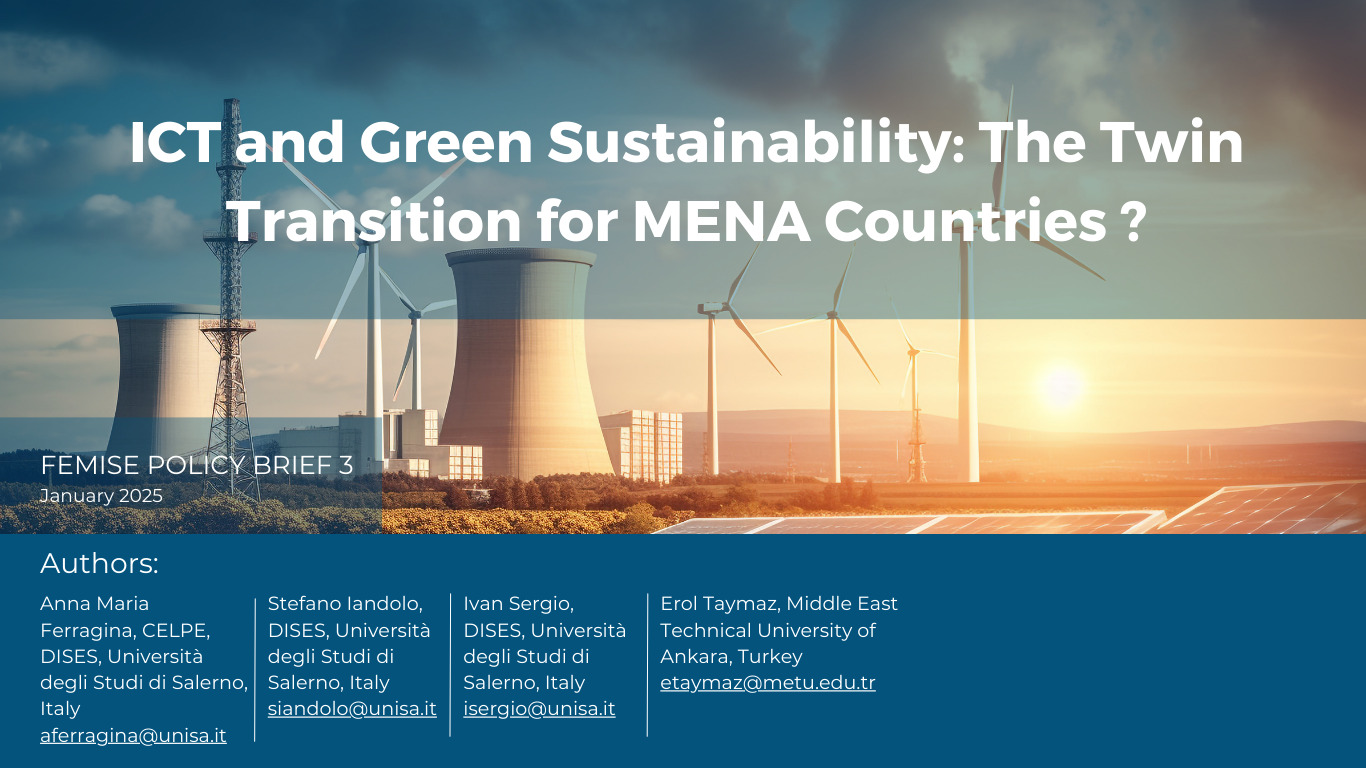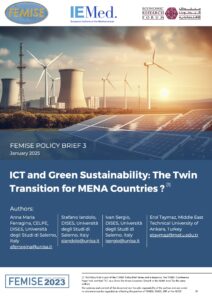
FEMISE is proud to launch its latest series of policy briefs, stemming from insightful conference papers presented at the FEMISE annual conference. These briefs are rooted in scientific research and offer actionable political recommendations to address critical challenges in the Euro-Mediterranean region.
The objective if this new series of Policy Briefs is to provide policy makers, international organisers, researchers and stakeholders in the EU-Med region with research-based policy recommendations that: advocate a better EU-Med integration; promote mobilization of investments towards green transition and sustainable economies; empower young people through innovation and entrepreneurship advocacy; and facilitate a better and more equal integration of youth and women, aiming to create pathways for decent employment.
These Policy Briefs aspires to drive impactful dialogue and action across the EU-Med region.
Context
This policy brief highlights the intricate relationship between technological advancements and environmental sustainability, emphasizing the potential of ICT to revolutionize energy efficiency, reduce carbon emissions, and contribute to a more sustainable future.
The MENA region, rich in natural resources yet grappling with severe environmental challenges, stands at a crossroads. With air pollution, water scarcity, and climate destabilization threatening public health and economic stability, it is imperative to adopt innovative, context-specific policies. This brief underscores the role of ICTs not just as tools of connectivity but as catalysts for green growth—enabling smarter resource management, fostering renewable energy adoption, and bridging regional inequalities.
 Summary
Summary
In our work (Ferragina et al., 2023) we investigate the relationship between Information and Communication Technologies (ICTs) and environmental sustainability in the Middle East and North Africa (MENA) region. Through the analysis encompassing various dimensions of ICT adoption and energy utilization, our findings offer crucial insights into the potential impact of technological advancements on carbon emissions and energy conservation. The results reveal peculiar patterns, emphasizing the pivotal role of ICTs in increasing energy efficiency mitigating environmental impacts. Alternative energy sources show promise for emissions reduction, highlighting the importance of sustainable energy technologies. Furthermore, the study underscores the need for context-specific policies and interventions, emphasizing the multifaceted nature of these relationships.
Overall, the MENA region faces severe air quality challenges, with significant implications for public health and the economy and urgent measures are necessary to address these issues and improve air quality for the well-being of the population and sustainable development. Tackling air pollution and improving air quality in the MENA region is crucial to protect public health, promote sustainable development, and mitigate the negative impacts of urbanization and energy consumption. In addition, air pollution-induced rising temperatures exacerbate the issue of water scarcity, which is a pressing concern in the MENA region. Therefore, public policies should support investment in digital infrastructure, and improve the digital literacy across the laggard MENA regions. Such policies would remove digital inequalities across MENA countries and also increase social and economic cohesion.
This policy brief provides a foundation for further exploration and policy formulation towards a sustainable and technologically driven future for the MENA region.
Read the full Policy Brief no.3 here
This Policy Brief is part of the FEMISE Policy Brief Series and is based on the FEMISE Conference Paper no.5. entitled : «ICT as a Driver for Green Economic Growth in the MENA Area» with the same authors.
The opinions and contents of this document are the sole responsibility of the authors and can under no circumstances be regarded as reflecting the position of FEMISE, IEMED, ERF or the AECID


